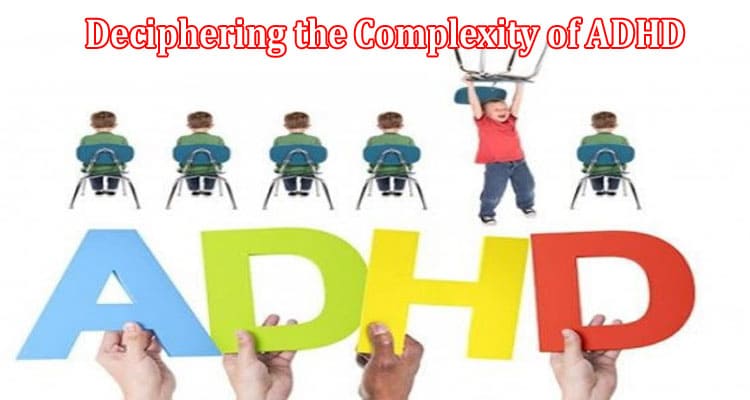Deciphering the Complexity of ADHD: Understanding Types and Unraveling Connections to Anxiety
ADHD, or Attention Deficit Hyperactivity Disorder, is a neurodevelopmental condition that affects individuals across various age groups. In this comprehensive exploration, we’ll delve into the intricate world of ADHD, examining its types and shedding light on the intriguing links between ADHD and anxiety.
What is anxiety? Anxiety is a multifaceted and complex emotion that everyone experiences at some point in their lives. It’s a normal reaction to stress or uncertainty, often serving as a protective mechanism alerting us to potential dangers. However, when anxiety becomes persistent, overwhelming, or disproportionate to the situation, it can develop into an anxiety disorder. Let’s delve into the layers of anxiety to gain a deeper understanding.
1. Normal Anxiety:
At its core, anxiety is a natural response to stressors. It prepares the body to face a perceived threat, commonly known as the “fight or flight” response. In this state, the body releases stress hormones, such as cortisol and adrenaline, to heighten alertness and physical readiness.
2. Types of Anxiety Disorders:
While normal anxiety serves a protective function, anxiety disorders involve excessive and uncontrollable worry that interferes with daily life. Common types include:
- PanicDisorder: Recurrent, unexpected panic
- Social Anxiety Disorder: Intense fear of social situations and scrutiny by
- Obsessive-Compulsive Disorder (OCD): Intrusive, unwanted thoughts(obsessions) and repetitive behaviors (compulsions).
3. Physical and Emotional Components:
Anxiety manifests in both physical and emotional symptoms. Physical symptoms may include increased heart rate, muscle tension, sweating, trembling, and digestive issues. Emotionally, individuals may experience restlessness, irritability, difficulty concentrating, and a sense of impending doom.
4. Triggers and Causes:
Anxiety can be triggered by a range of factors, including stress, trauma, genetics, brain chemistry, and environmental factors. Understanding these triggers is crucial in developing effective coping strategies and treatment plans.
5. Impact on Daily Functioning:
When anxiety becomes chronic, it can significantly impact daily functioning. Sleep disturbances, impaired concentration, strained relationships, and a diminished quality of life are common consequences. Identifying these impacts is essential for seeking timely intervention.
6. Seeking Support:
Cognitive-behavioral therapy (CBT), medication, mindfulness techniques, and lifestyle adjustments are among the many tools available. Seeking professional support can provide individuals with the skills and strategies needed to navigate and overcome anxiety.
ADHD Unveiled: Types and Characteristics
Inattentive Type:
The Inattentive type of ADHD is characterized by difficulties sustaining attention and staying organized. Individuals may appear forgetful, easily distracted, and struggle with tasks that require prolonged focus.
Hyperactive-Impulsive Type:
The Hyperactive-Impulsive type manifests with excessive activity, restlessness, and impulsive behaviors. Those with this type may have trouble sitting still, act without thinking, and find it challenging to engage in activities quietly.
Combined Presentation:
As the name suggests, the Combined Presentation involves a combination of inattentive, hyperactive, and impulsive symptoms. This is the most common type of ADHD and presents a diverse range of challenges across multiple domains.
The Interplay Between ADHD and Anxiety: Unraveling the Connection
Shared Neurological Pathways:
Both ADHD and anxiety share common neurological pathways, contributing to their intricate relationship. Research suggests that disruptions in neurotransmitter functions, particularly dopamine and norepinephrine, play a role in both conditions.
Executive Function Challenges:
Executive functions, responsible for tasks such as planning, organizing, and initiating tasks, are often impaired in individuals with ADHD. These challenges can contribute
to the development of anxiety, as the uncertainty of navigating daily responsibilities becomes a source of stress.
Impact on Self-Esteem:
Living with ADHD can affect self-esteem due to the challenges faced in various aspects of life. This, in turn, can pave the way for anxiety to take root, as individuals may grapple with feelings of inadequacy or fear of judgment.
Coping Mechanisms and Anxiety:
Individuals with ADHD may develop coping mechanisms to navigate their daily lives. However, these strategies, if maladaptive, can contribute to heightened anxiety.
Procrastination, avoidance, or impulsivity in decision-making may exacerbate anxious feelings.
Social Implications:
Social interactions can be particularly challenging for individuals with ADHD. Difficulties in reading social cues, impulsivity, or restlessness can lead to social anxiety. The fear of judgment or negative social experiences may further contribute to anxiety symptoms.
ADHD and Anxiety: Navigating the Diagnostic Landscape
Comorbidity Challenges:
Diagnosing ADHD alongside anxiety presents unique challenges due to overlapping symptoms. Distinguishing between symptoms arising from ADHD itself and those indicative of a comorbid anxiety disorder requires a thorough evaluation by mental health professionals.
Treatment Approaches:
Tailoring treatment plans for individuals with both ADHD and anxiety involves a multifaceted approach. Interventions may include behavioral therapy, medication, and strategies to address executive function challenges. The goal is to alleviate symptoms and enhance overall well-being.
Holistic Support:
Recognizing the interconnected nature of ADHD and anxiety underscores the importance of holistic support. Educational interventions, lifestyle adjustments, and emotional support contribute to a comprehensive approach aimed at fostering resilience.
ADHD, with its diverse types, is intricately intertwined with anxiety, creating a complex landscape that requires nuanced understanding and tailored interventions. By unraveling the connections between ADHD and anxiety, individuals, caregivers, and professionals can navigate this intricate terrain with empathy, awareness, and effective strategies for support and management.

Medically approved by
Rychel Johnson, M.S., LCPC, a licensed clinical professional




